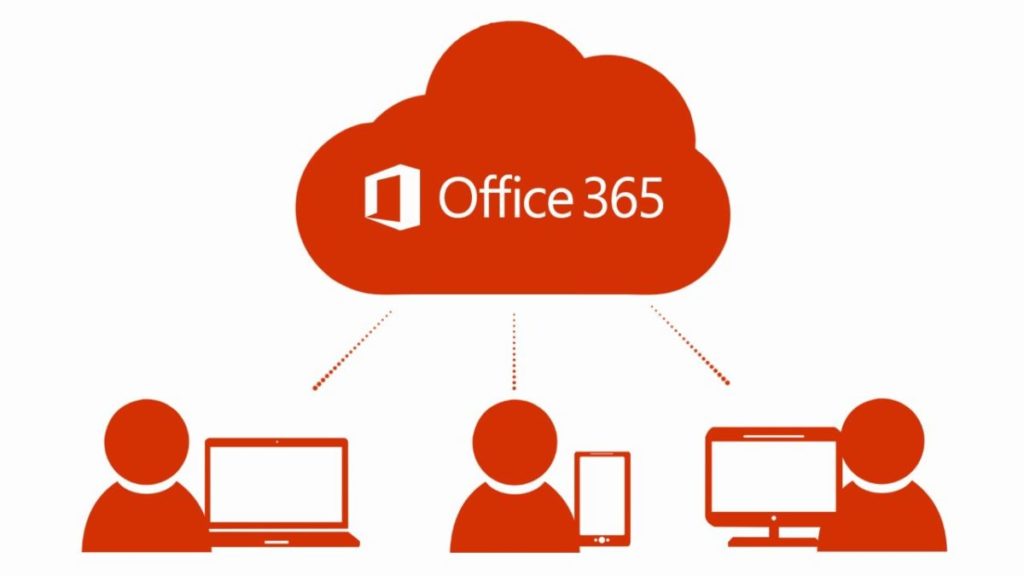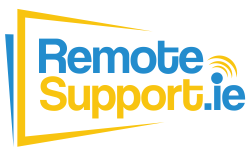
Five Tips to Avoid Phishing Attacks
March 18, 2020Is Your Business Remote Working Ready?
There’s been a lot of talk about “Remote Working” over the past number of days however, the adoption of remote working had seen significant growth long before Coronavirus was on anyone’s radar. Remote working is a viable option for many but unfortunately for many more, it is not. As a digital marketer, I can very easily work from home, as I’m doing while writing this post but what about employees at a production facility? Moving a factory assembly line to an employee’s place of residence might prove challenging, to say the least. Customer-facing workers are also excluded from this flexible working option. A research report titled “Remote Working in Ireland – Future Jobs 2019” defines remote working as “a form or organising and/or performing work using information technology …. which could also be performed at the employer’s premises” There are two primary types of remote working:
- Homeworking, where the employee works from home.
- Hub-working, where the employee works from a hub, with co-working collaborative space or hot desking facilities.
When I added the idea for this post to my content calendar, several weeks ago, Coronavirus/Covid-19 wasn’t something many people outside of mainland China were overly concerned about. Over the past number of days, we have been hearing about tech giants such as Google and Twitter asking their entire workforce to work from home in light of the outbreak and to test their readiness for remote working. I will shortly go into the influencing factors when considering remote working from the perspectives of both employers and employees. I have harvested these influencing factors from research carried out on behalf of the Department of Business Enterprise and Innovation in Ireland. At no time during this research, was a worldwide epidemic or possible pandemic considered as an influencing factor. The situation is changing by the day and there is a very real possibility that remote working may well become the business continuity tool of necessity for many businesses, both large and small. With that said, there’s a lot a scaremongering and misinformation doing the rounds on social media and the web and in the world of “Fake News” many are still drawn in by sensational clickbait headlines. We all hope that the impact of this virus on people’s health, freedom of movement and ability to work is minimal. However, should more draconian measures be required to curtail it, employees working remotely, may, as I have mentioned, become the business continuity tool of choice or necessity for many.
Coronavirus may well be a crisis that everyone all over the world is talking about but what about extreme weather events? Here in Ireland, there have been several powerful storms over the past few weeks that have resulted in restrictions of movement for many of its citizens. This too can have a drastic impact on business.
These are of course emergency situations when remote working may become a viable and necessary option but what about companies that simply want to engage in this practice for any number of reasons that may benefit the company and the employees. What follows are non-emergency related influencing factors for remote working as it relates to employees and employers.
Influencing Factors for Employees:
Flexibility
Flexibility is one of the key motivators for employees who are or wish to engage in remote working. They see it as striking a balance between work and family and has been shown to be of particular importance to parents returning to the workforce.

Cost-Effectiveness
Remote working reduces costs to employees in terms of commuting, childcare and housing owing to employees not being required to live in or around large cities.
Reduced Commutes
Not only are commuting costs eliminated but also the time spent commuting with many remote workers saving hundreds of hours a year.

Work-life Balance
Remote working has been found to have a largely positive impact on the work-life balance, however separating work and family life has also been identified as a potential obstacle.
Availability of Broadband
Broadband availability isn’t something many of us who work in or around a city have to worry about but what about rural regions? Broadband availability is vital if remote working is to be a viable option.
Cultural Factors
Large companies are more resistant, with research suggesting that managers and supervisors often discourage employees from making use of flexible working arrangements. Trust between employers and employees was found to be both a key enabler and a barrier to remote working adoption.
Influencing Factors for Employers:
Access to Talent
There has been significant growth in employment in Ireland over the last several years. Demand for talent has grown as competition in the labour market has become tighter. The adoption of remote working opens the company up to a larger pool of available talent.

Employee Demand
A primary influencing factor for employers is the demand for remote working by employees both current and potential future employees.
Productivity
Several studies have shown that remote working has led to significant increases in productivity, largely due to fewer breaks and sick days. Employees are also more productive as they find it easier to concentrate in a quieter working environment.

Sustainability
Sustainability goals are something we all need to consider and take action on. There is now a very strong and overt sense of public demand that employers try to reduce their carbon footprint. Remote working has been proven to reduce harmful emissions and energy use.
Cost-Effectiveness
Remote working policies have been shown to save significant sums for many companies. If a percentage of your employees are working from home, you don’t require as much expensive real estate to accommodate them. Dell has reportedly saved in the region of €12 million per year in real estate costs by consolidating and creating more flexible working options
ICT Requirements
ICT requirements have come through as key challenges to both employers and employees with concerns about cybersecurity and data protection. This can be largely alleviated with the right policies and tools, some of which I will address in the next section.
Tools for Remote Working
Microsoft Office 365 Enterprise

Office 365 is probably the most popular productivity suite utilised by businesses, all over the world. Most users don’t use it to its full potential and may not be aware that it is designed to empower remote workers. One vital requirement of remote working is the ability to connect and collaborate with colleagues. Office 365 is an ever-evolving ecosystem of software tools both on the desktop and in the cloud that is fast becoming the go-to platform for all your office productivity & collaboration requirements.
Collaborative features of Office 365 include:
- Online meetings and chat sessions.
- Shared workspaces for real-time collaboration.
- Shared tasks and workflows.
Collaborative Platforms include:
- SharePoint
- Microsoft Teams.
- OneDrive
Office 365 security includes:
- Enforced authentication requirements.
- Encrypted connections and digital assets in the cloud.
- Permissions to define who can do what and with what files.
- Data Loss Prevention (DLP) to prevent leaking of highly regulated data.

Virtual Private Network (VPN)
A VPN service for remote work allows users to establish a secure online connection with a remote computer from anywhere in the world. If you haven’t invested in a productivity and collaboration suite such as Office 365 and you just want to give remote working employees access to the company network, a VPN may well be a viable option for your company. The most important aspect of a VPN is that it’s a secure way for employees to log into the company network without having to open your network to the public.
VoIP Communications

Voice over Internet Protocol (VoIP) is a very popular method of telecommunication that utilises both hardware and software to communicate over a broadband connection. Adoption rates for VoIP have increased year on year and not only is it the perfect tool for remote workers but has been shown to save companies up to 70% on traditional phone bills. With VoIP, you communicate with a handset that looks and acts the same as a traditional desktop telephone or via an app on your mobile device. What makes VoIP a popular choice for many is not just the potential cost savings but also the portability of your number. With VoIP, your contact number is not connected to a physical address but instead to the handset or app. You can be anywhere in the world and the caller will believe that they are talking to you at your business address. This is not designed to deceive but simply allow the portability of your business and its workforce. Office 365 users can also integrate Microsoft Teams with their VoIP provider.

Hot-Swap Hardware
With many now planning for worst-case scenarios in light of the emerging Coronavirus crisis, many companies are kitting out in preparation for remote working. IT support companies such as IT.ie will be able to support your remote workers remotely but what happens if hardware fails or breaks? If you have employees in quarantine or we are in a state of lockdown, we may not be able to send engineers to carry out physical repairs or replacements. We strongly recommend that at the very least, each business retain a number of spare laptops. Should a remote worker experience a hardware failure on their laptop, it would be wise to have a pool of machines that they can quickly get back up and running on.
With the help of their ‘Remote Working’ IT Helpdesk of course!
Wrap Up
The availability of remote working tools is ever increasing and will continue to do so as more and more companies experiment with and roll out remote working and other flexible working options to their employees. Companies have real and justifiable concerns about allowing their workers to take company ICT equipment off-site, fearing that devices could be compromised, and data lost or misused. Many tools allow you to implement the same ICT policies on remote workers and office-based workers. Device encryption prevents prohibited access to physical devices when offsite. Enterprise security tools protect your valuable data and AI-powered email filtering tools protect your employee’s inbox regardless of where they are located, from malware and phishing attacks.
For many types of business, the concept of remote working has benefits for both employers and employees. I have listed the influencing factors for both employers and employees when considering this option. The current crisis with the Coronavirus has, for many, become the most influencing factor to consider in order to protect their employees and keep their business operational. Hopefully, this current crisis will pass quickly will little adverse effect on people’s health and ability to work and operate a business. For me, the biggest influencing factor is work-life balance. Today, people are willing and eager to work hard to advance their careers but also want to spend time with their families. Remote working allows you to balance your professional and private life without compromising your work ethic. I do accept also that this can be challenging for some, where the lines of professional and private life cross paths.
You may already be using the tools you require to allow your employees to work remotely and simply don’t know it. Why don’t you drop us a mail via our Contact Page or give us a call on (01) 8424114 and we can advise if you have the necessary tools and if you don’t we’d be happy to introduce you to some of the tools we use ourselves when our team members work remotely.

